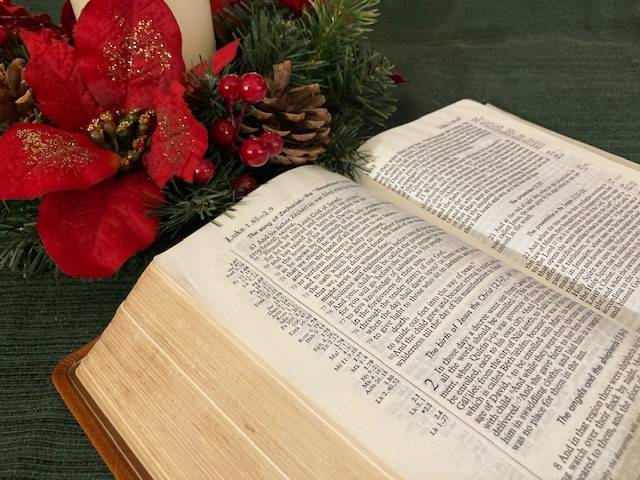Written by Keith Doornbos
December 22, 2020

God created humans so they find change pleasurable. That’s what C.S. Lewis highlights in his SCREWTAPE LETTERS (see Letter 25). But God didn’t want change to become an end in itself, says Lewis, so he balanced the love of change with the love of permanence. This union of change and permanence, he points out, creates the “Rhythm of life”. Lewis illustrates this with the changing seasons which, by God’s design, are forever new and forever familiar. Christmas is like that. It is forever new while also being forever familiar in the retelling of the age-old story of Immanuel, God with us. This rhythm of permanence and newness is a balance that should be present in renewal congregations. Congregations only focusing on permanence feel stuck and irrelevant. Churches only focusing on newness feel faddish and trivial.
Here are 7 rhythms that help renewal congregations balance permanence with newness
Rhythm 1: Embrace the Church Year
Just as the seasons of nature blend permanence with newness, so also the Church Year provides a rhythm of freshness and stability. The depth of each congregation’s investment in the church year will depend on their particular practices but investing in the seasons of Advent, Lent, Ascension and Pentecost should not be missed.
Rhythm 2: Integrate a Fresh Use of Creeds and Confessions
The creeds and confessions were ruined for many by stuffing kids into dank church basements after long school days to recite the Catechism. Quite apart from those memories, creeds and confessions are full of life and beauty. They are extraordinary teaching aids that connect today’s church with vivid stories of great faith heroes.
Rhythm 3: Pursue Liturgical Breadth, Depth and Diversity
Liturgy has sometimes been reduced to a series of disconnected praise songs sung with vigor. Such “liturgy” often lacks the imagination that touches the human spirit and connects us to the great redemptive work of Christ. Besides praise, liturgy should also provide time for examination, restoration, quiet reflection, prayers and quality biblical instruction.
Rhythm 4: Celebrate Multi-Generational Ministry
Congregations embracing permanence tend to attract aging saints while congregations embracing newness tend to attract young believers. The goal is to blend those communities so aging saints fortify faith while young believers freshen faith. Build a rhythm of regularly mixing intergenerational communities so faith is enriched for all ages.
Rhythm 5: Create Congregational Tradition
The experience of permanence and newness begins in your own congregation. For example, a church I pastored pulled out all the stops on Thanksgiving morning. The 10 a.m. 50-minute gathering celebrating the goodness of God was talked about all year round. Thanksgiving wasn’t Thanksgiving without that gathering. It was part of the rhythm of life.
Rhythm 6: Teach and Practice Spiritual Disciplines
The spiritual disciplines, including Scripture reading and prayer, are a wonderful and necessary way to bring permanence and newness into the life of the congregation. Churches should provide instructional tools and various aids, including Scripture reading guides and prayer guides, to help congregants develop this rhythm of life.
Rhythm 7: Find New Ways to Communicate the Old, Old Story
Patterns of communication are shifting rapidly. New ways of communicating the old, old story need to be examined including the use of new technologies along with fresh ways of connecting with contemporary audiences. During the pre-pandemic I picked up Chris Anderson’s TED TALKS at an airport kiosk and found it surprisingly instructive.







